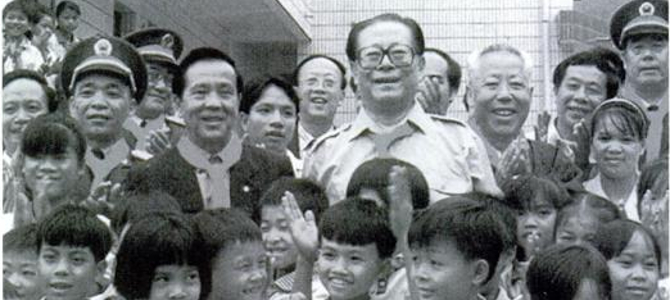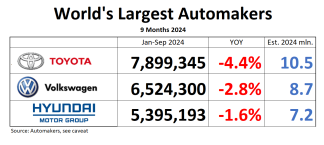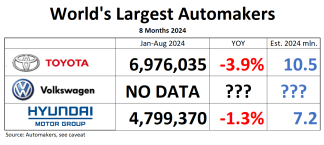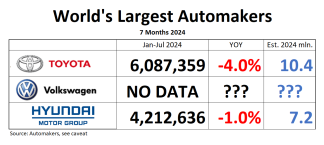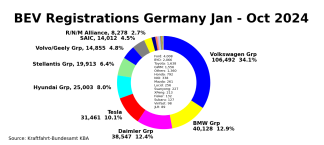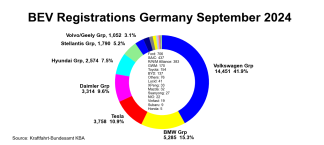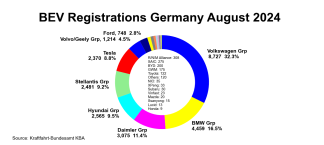Ever since the dramatic 2012 downfall of the colorful Chongqing party leader Bo Xilai, the Western press has been fascinated with China’s “princeling” plutocrats and the Central Government’s efforts to restrain them. No wonder: the battle is China’s basic political division, pitting the bureaucratic and ideological power of the Beijing Central government against the economic power of Southern Chinese entrepreneurs centered around Shanghai. Under former Shanghai mayor Jiang Zemin, China opened rapidly to the foreign investment that spurred decades of florid economic expansion… and sowed the seeds of China’s major political problems, corruption, inequality and environmental ruin. The downfall of Bo Xilai, a protege of Jiang Zemin’s Shanghai clique and member of its successor “Princeling” clique, was taken as a sign that Xi Jinping is serious about continuing Hu Jintao’s campaign against the ill-gotten gains of the Shanghai boom… a signal that is growing louder as the investigations widen.
Why the ten-cent lecture on Chinese politics? Shanghai’s automotive star rose alongside Jiang Zemin’s, and the city with which the he is synonymous has become one of China’s biggest automotive players and partner to the two biggest foreign presences in China, Volkswagen and GM. If Xi Jinping’s reform movement continues to target Shanghai and its Princelings, and especially if the investigations draw closer to Zemin himself, automakers could find themselves on awkward ground. Caught between the guanxi (connections) culture of the world’s new largest market for cars and the Foreign Corrupt Practices Act of what is still the most profitable market for cars, automakers with Shanghai exposure have reason for concern.
Like Shanghai itself, Jiang Zemin’s career is deeply interwoven with the auto industry. During China’s first Five Year plan, Jiang was one of 39 Chinese engineers who traveled to the then-Stalin Automobile Works for training on the production of large trucks which were subsequently the very first product made by First Auto Works, now one of China’s major state-owned automakers. The project was part of Soviet assistance, with the Russians allegedly choosing the plant’s location near the Russian border, and Jiang soon transitioned into politics. The electric engineer moved through the government-industrial ranks, eventually becoming minister for electronic industries in 1983. Two years later he became Mayor of Shanghai, just as the municipality entered into the first modern Chinese auto joint venture: Shanghai Volkswagen. A decade later, when Shanghai-GM was formed, Jiang was consolidating his power on the Chinese Central government and his Shanghai clique was guiding the epicenter of China’s economic miracle.
From the start, Volkswagen seemed to get into trouble in Shanghai: the 1993 suicide of Shanghai-VW’s Managing Director provided a troubling insight into the situation:
It is alleged that Mr Fang personally sold 15 Volkswagen Santana sedans each month to private clients and that he did not keep proper records of the transactions.
Mr Fang, who was one of the most powerful businessmen in Shanghai, was informed by a senior official in the procuratorate that he was about to be investigated and that there was very little chance the investigation could be kept secret, one source said.
”He was basically given the choice of being investigated or taking the matter into his own hands,” the source said.
Jiang, then newly General Secretary of the Central Committee, ordered a “detailed and wide-ranging” investigation while his cronies in Shanghai were reported to “have also been informed and are said to be very concerned.” But Shanghai’s boom was only just beginning, and Jiang was still beginning to consolidate his military power (which he didn’t relinquish until 2004). Accusations of bribery involving Shanghai auto ventures surfaced again in recent years, even after Volkswagen’ corruption ombudsman hotline added Chinese language support in 2008, and Xi himself was put in charge of Shanghai’s political machine to bring credibility after a $400m pension corruption scandal ensnared local party boss Chen Liangyu (before being brought to Beijing as Hu’s protege). State Department cables posted by Wikileaks reveal that Jiang fought to protect his Shanghai allies in that case, including Vice Mayor Yang Xiong who had business ties to his son.
Yang was tied to Jiang’s elder son, China Academy of Sciences Vice President Jiang Mianheng, through Shanghai United Investment (Shanghai Lianhe Touzi). Their company had bankrolled major infrastructure development projects in and around Shanghai, such as the maglev train and the Yangshan port project. It was not clear where Peng obtained this information, but Peng mentioned that his older son worked with Jiang Mianheng at Grace Semiconductors in Shanghai.
Jiang Mianheng, eldest son of Jiang Zemin, is the kind of impossibly powerful and wealthy princeling that Xi’s populist mandate bids him target. While his father consolidated political power, the younger Jiang followed him into electrical (and nuclear) engineering before launching into a breathtaking financial career that seems to have capitalized almost too perfectly on Shanghai’s buoyant rise. Ostensibly leader of Chinese national research projects at the Chinese Academy of Sciences until late 2011, where he hasken credit for China’s space program and thorium reactor research, Jiang Mianheng has done business with everyone from Murdoch to Microsoft through Shanghai Alliance Investment Limited (SAIL), an investment fund set up in 1994. As Wing Chung Ho explains in an insightful piece for The China Review [PDF]
But the man who actually controlled the company with a registered capital of US$200 million was Jiang Mianheng. Also known as “Jiang Mianheng’s company,” SAIL actively channeled public funds into building telecommunication infrastructure… Unlike [Shanghai Science and Technology Investment Corporation], SAIL was a “mysterious” company that held no official opening ceremony, published no results, and made no public announcements about who were its top executives… the setting up of SAIL and the deployment of Jiang Mianheng as its head were mainly due to his princeling background.
Though the complexity and opacity of China’s financial system make it unclear just how much either Jiang has benefitted from SAIL and various other business ventures, its clear that the younger Jiang is exactly the kind of princeling Xi is now pursuing. Having escaped prosecution in the Chen Liangyu scandal (allegedly the elder Jiang “traded” Chen and others to protect family members), the younger Jiang was eventually ousted from the Chinese Academy of Sciences for involvement in a Shanghai stock manipulation scandal. In 2012, the SEC began an investigation into “at least three” Hollywood movie studios, including Dreamworks which had just announced a joint venture with Jiang Mianheng’s SAIL… just a year after Mianheng visited the White House (in the interests of partisan balance, Mianheng’s Grace Semiconductor also signed then-President George W Bush’s brother Neal to an inexplicable $2m consulting contract in 2002).
Thus far, Shanghai’s burgeoning automotive industry has evaded exposure to the crackdown on the Jiang faction, but that may not last. SAIL, Jiang Mianheng’s princeling fiefdom, acquired equity in Shanghai’s automaker SAIC (among other business concerns) in a manner as mysterious as the firm itself. According to a highly biased (but not necessarily inaccurate) accounting in Epoch Times:
In 1994, Jiang Mianheng bought the Shanghai Joint Investment Company worth over 100 million yuan for the incredibly low price of only a few million yuan borrowed from a bank. This was how Jiang Mianheng started his telecommunications empire. Huang, the Vice Chairman of the Shanghai City Economic Committee, originally founded the company after spending a lot of time and effort. But after founding the company and running it for only three months, Huang was suddenly transferred back to the Shanghai City Economic Committee. Next, Jiang Mianheng suddenly landed the position of President and General Manager as though he came down in a parachute. As a result, he suddenly became the King of Telecommunications in China. Mr. Huang has disappeared since then and no one can even remember his name. This is how Jiang Mianheng robbed him of the Shanghai Joint Investment Company.
The company is registered as a state-run corporation, but it has actually become Jiang Mianheng’s private business. With the Shanghai Joint Investment Company as his personal enterprise, Jiang Mianheng literally owns Shanghai.
Unteasing the line between public and private ownership may not be easy in China, but SAIL seems to represent precisely the kind of transfer of public resources to connected family members that Hu’s Communist Youth League clique is weilding against Jiang’s faction. Moreover, Xi’s latest Jiang faction scalp, the Zhou dynasty centered China National Petroleum Corp, revealed a familiar automotive connection:
In 2010, Zhou Lingying invested 19 million yuan to set up Jiangyin Benyue Auto Co. as an auto part supplier. The company later became the city’s only Audi dealer.
“In the auto industry, everyone knows that the Audi dealership is very profitable,” an auto dealer in Beijing said. “It not only requires money, but also strong connections.”
As Xi’s round-up of Jiang’s Shanghai cronies rolls on it’s increasingly likely that cars will become involved. Like Beijing-Shanghai conflict itself, cars reflect China’s two competing impulses: embrace of boundless sales growth potential, and restrictions to curb the excesses of traffic and pollution. The political elite’s preference for import-brand cars like Audis, while expending public resources and rhetoric on the cause of building China’s auto industry, underscores the tension Xi’s populism is tapping into. Indeed, noted China auto industry analyst G.E. Anderson recently suggested that General Motors’ restructuring of its international operations, creating a new China unit and moving “Consolidated International Operations” to Singapore was a hedge against the uncertain political situation
In hindsight, it seems GM became overly excited about China as Hu Jintao began to halt the reform momentum inherited from his predecessors (following Jiang Zemin’s retirement from the Central Military Commission in 2004). And now that Xi Jinping may be preparing to implement some big changes in China’s economy, GM is bailing out.
Both Mr Anderson’s book “Designated Drivers: How China Plans To Dominate The Global Auto Industry” and Michael Dunne’s “American Wheels, Chinese Roads: The Story of General Motors in China” are testaments, if often diplomatically phrased, to the reality that GM has overcommited not just to China but to Shanghai itself. Whereas Volkswagen can balance Shanghai with its joint venture at well-connected First Auto Works, GM’s reliance on Shanghai is nearly complete (for example, GM’s new global “Ecotec” family of four-cylinder engines were jointly developed in Shanghai with SAIC). Having apparently untangled itself from a murky 2009 transaction in which SAIC arranged financing for GM’s restructuring of Daewoo (later GM Korea) on still-undisclosed terms that saw control of both Shanghai GM and GM India change hands, relations between GM and SAIC seemed be cooling already. With the political winds blowing against Shanghai, and Jiang Mianheng’s name appearing with increasing regularity in US media coverage of l’affaire princeling, GM has good reason to firewall its China operations.
So far in 2014 the Jiang clan seems to be taking measures against a possible showdown with Xi: Jiang Zemin recently urged Beijing to curb its latest anti-corruption drive, and Jiang Mianheng suddenly appeared as the head of the new ShanghaiTech University, which focuses on “national development strategies.” Whether the younger Jiang’s new post is a way to hide from investigation without discontinuing business activities or something more sinister is still subject to interpretation, but in the words of one legal analyst:
“If they catch Zhou Yongkang, Jiang Zemin will be caught soon. Jiang Zemin’s son’s appearance is more like a lightning before death, that means, he seems fine now but he is dying…. It is actually to show the public that this person is still alive. They made a footnote to pursue responsibility in graft later. His appearance is just like Zhou Yongkang’s showing up before being taken care of. This is actually Xi and Li’s customary practice.”
If Xi’s anti-corruption crusade takes down the Jiangs, it’s hard to imagine that lots of the Shanghai auto world’s dirty secrets won’t come spilling out… and who knows where that could land GM and Volkswagen.
